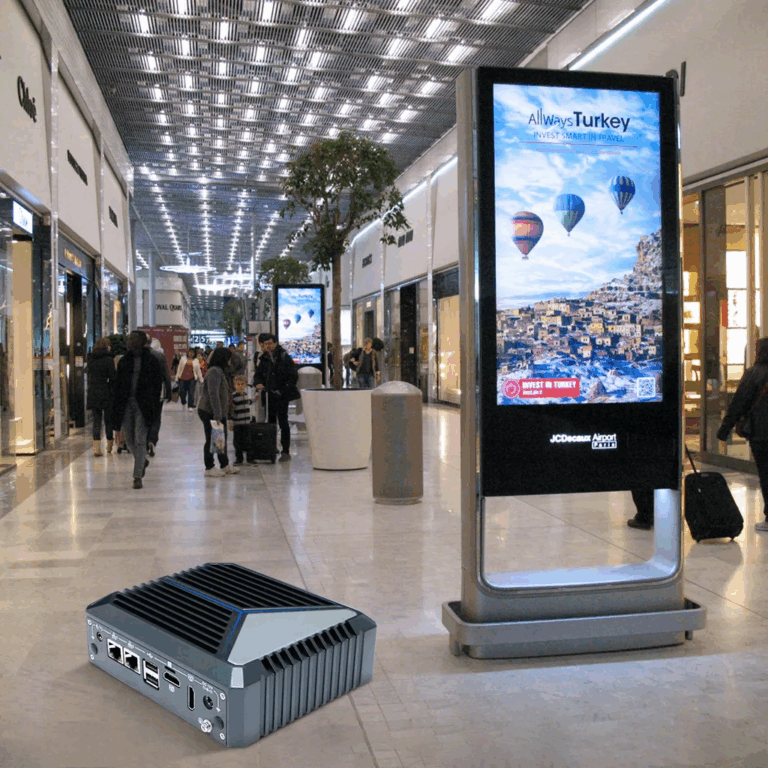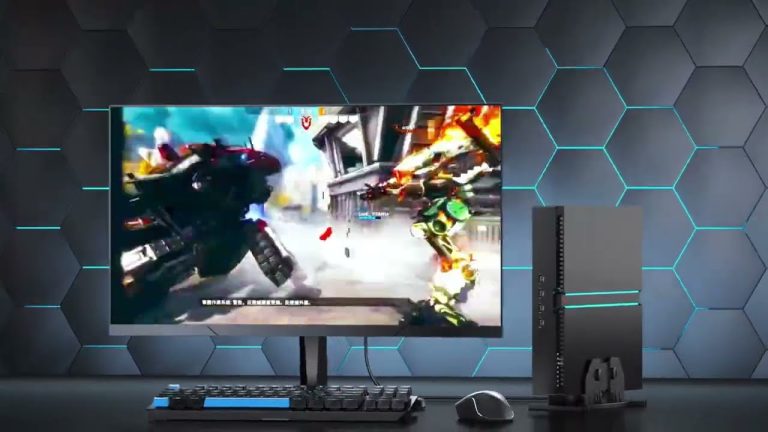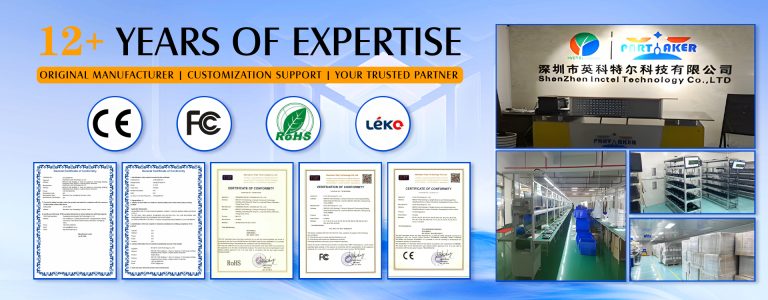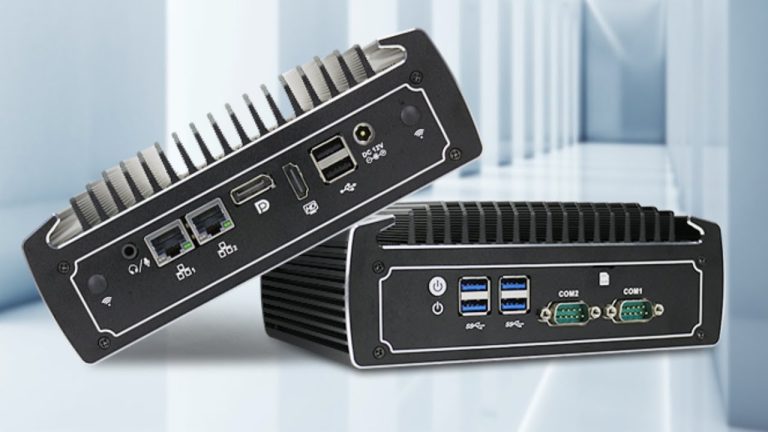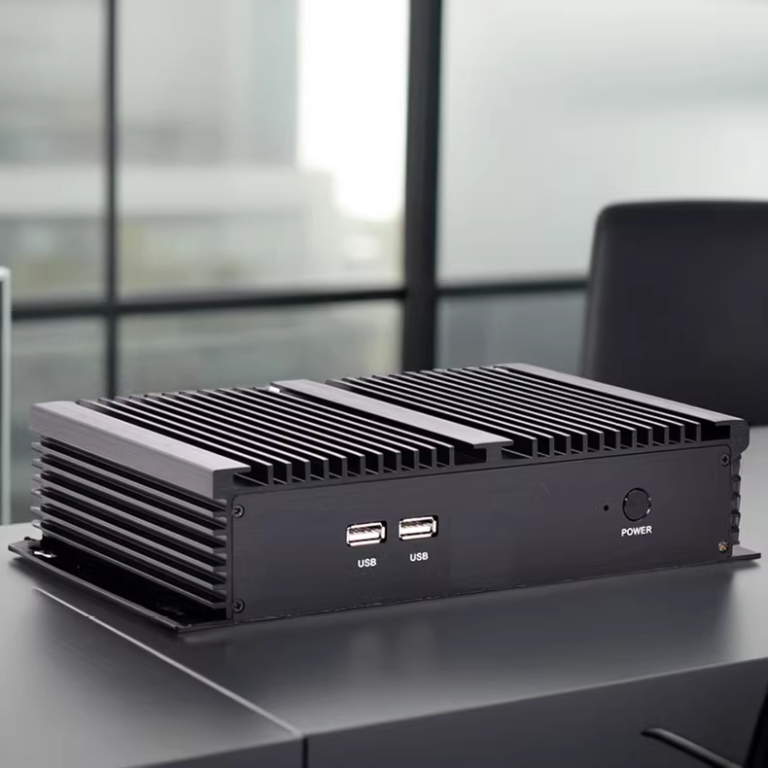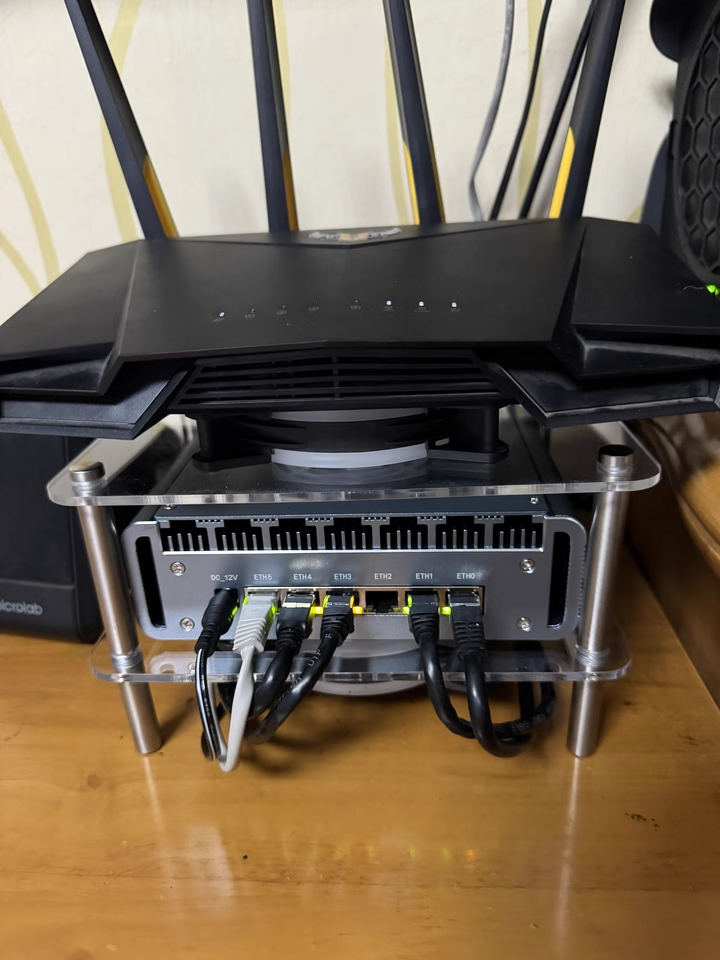Mini PCs are integral to a variety of medical applications, including electronic health records (EHRs), telemedicine, medical imaging, and point-of-care systems. The small size, energy efficiency, and adaptability make them essential in environments where space and performance are at a premium. With advancements in artificial intelligence (AI), machine learning (ML), and IoT integrations, mini PCs are now capable of handling complex tasks, further boosting their appeal in healthcare.
Healthcare facilities are turning to mini PCs to streamline patient care, improve administrative workflows, and bolster data security. Their ability to support real-time monitoring, secure data sharing, and advanced analytics has made them indispensable in modern medical environments. According to market projections, the global mini PC market is expected to grow by USD 17.4 billion between 2024 and 2028, at a CAGR of 4.5%. This trend underscores the growing reliance on mini PCs for critical applications, as healthcare organizations prioritize compact, efficient, and robust computing solutions.
Performance Requirements
When purchasing in bulk mini PCs for healthcare, performance is paramount. Do evaluate:
- Processing Power. Mini PCs must handle resource-intensive tasks like real-time medical imaging and large-scale EHR processing. Devices with multi-core processors, such as Intel Core i5 or i7 CPUs, are well-suited for these needs.
- Memory and Storage. Ample RAM (8GB or more) ensures smooth multitasking, while SSD storage (at least 256GB) allows for fast data access and retrieval. These features are crucial in environments where delays could impact patient care.
- Graphics Capability. For radiology or diagnostic imaging, mini PCs must include advanced GPUs capable of rendering high-resolution visuals.
Procurement teams should align these specifications with the intended use cases, ensuring devices are neither underpowered nor over-engineered for their applications.
Reliability and Durability
In a healthcare setting, mini PCs must operate seamlessly under demanding conditions. Devices should be rigorously tested for reliability and durability, as downtime can disrupt critical medical workflows. Consider the following:
- Fanless mini PCs, such as those offered by Inctel Technology, are ideal for sterile environments as they reduce noise and minimize dust accumulation.
- 24/7 Operation. Many healthcare applications, including patient monitoring systems, require devices capable of continuous operation without overheating.
- Vendors offering robust warranties (e.g., 3 years) and 24/7 technical support ensure long-term reliability, minimizing maintenance costs.
Security Considerations
With healthcare being one of the most data-sensitive industries, cybersecurity is a top priority. Mini PCs used in medical environments must include robust security features to protect patient records and comply with regulations like HIPAA. Look for devices with:
- Built-in Security Features. TPM (Trusted Platform Module) chips, secure boot, and biometric authentication add layers of security.
- Software Compliance.Devices should be compatible with endpoint security software and medical applications.
- Data Encryption. Hardware-accelerated encryption ensures that sensitive data remains secure during transmission and storage.
Additionally, vendors that adhere to certifications like CE, FCC, and ROHS provide reassurance that the devices meet international security standards.
Vendor Capabilities
Selecting the right vendor is as important as choosing the right devices. Inctel Technology, for example, distinguishes itself with comprehensive OEM/ODM services, allowing healthcare organizations to customize hardware and software to their specific needs. Consider these vendor capabilities:
- Vendors offering tailored solutions, such as multi-LAN configurations for networking or specialized mounting options for hospital carts, can better address unique healthcare requirements.
- Vendors like Inctel rigorously test their devices for up to 48 hours to ensure stability and reliability.
- Vendors with certifications like CE, FCC, and ROHS demonstrate compliance with international quality and safety standards.
- Ensure the vendor provides responsive technical support, preferably 24/7, to address issues quickly and minimize downtime.
Connectivity and Compatibility
In healthcare, mini PCs often operate as part of a larger ecosystem, interacting with peripherals like monitors, scanners, and medical devices. Key considerations include:
- Port Availability. Mini PCs should include HDMI, USB, Ethernet, and potentially Thunderbolt ports to connect with existing equipment.
- Wireless Connectivity. Wi-Fi 6 or 5G support ensures seamless connectivity for telemedicine and remote monitoring.
- Operating System Compatibility. Devices should support healthcare-standard operating systems like Windows or Linux to ensure compatibility with medical software.
Energy Efficiency
Energy efficiency is a critical factor for hospitals looking to minimize operational costs. Many mini PCs, including fanless designs, consume significantly less power than traditional desktops. This not only reduces electricity bills but also aligns with sustainability goals. Devices with Energy Star ratings or similar certifications are preferred for their proven efficiency.
Budget and Cost Optimization
While mini PCs are cost-effective, procurement teams should carefully evaluate total ownership costs. Beyond upfront prices, consider:
- Bulk Discounts. Many vendors, including Inctel Technology, offer bulk purchase plans that lower per-unit costs.
- Longevity. Investing in durable, high-quality devices reduces the need for frequent replacements.
- Software Licensing. Verify whether software costs are included or require additional budget allocation.
Emerging Trends to Leverage
The healthcare sector is increasingly integrating advanced technologies that enhance patient care and operational efficiency. Mini PCs should be future-proof to accommodate these trends:
- AI and IoT. Devices with AI capabilities and IoT integrations enable predictive analytics, remote diagnostics, and improved patient monitoring.
- Augmented Reality (AR). Mini PCs supporting AR can revolutionize training and diagnostics by providing interactive visualizations.
- Cloud Integration. Cloud-ready devices enable seamless data sharing and remote collaboration, essential for telemedicine and multi-location healthcare systems.
Inctel Technology: A Leading Choice for Healthcare Mini PCs
Inctel Technology is a standout vendor in the mini PC market, offering tailor-made solutions for healthcare applications:
- Inctel’s OEM/ODM services allow healthcare organizations to design devices that meet specific needs, such as multi-LAN configurations or fanless designs for sterile environments.
- Every unit undergoes 48 hours of extensive testing, ensuring reliability even under continuous operation.
- With CE, FCC, and ROHS certifications, Inctel guarantees devices meet stringent international standards.
- Inctel offers a 3-year warranty and 24/7 customer service, ensuring long-term value for bulk purchases.
For healthcare facilities prioritizing reliability, security, and customization, Inctel Technology provides an unmatched solution. Contact them at sales@inctelpc.com or visit Inctel Technology to explore our offerings.
FAQs
What key certifications should I look for when purchasing mini PCs for healthcare use?
Ensure the mini PCs have CE, FCC, and ROHS certifications for global safety and environmental compliance. For healthcare-specific needs, check for adherence to HIPAA standards to ensure data security and patient privacy.
How can mini PCs be integrated with existing medical equipment?
Look for mini PCs with versatile connectivity options, such as HDMI, USB, and Ethernet ports, as well as wireless capabilities like Wi-Fi 6 or 5G. Compatibility with common operating systems, such as Windows or Linux, is crucial for running medical software and integrating seamlessly with existing equipment.
What level of customization should I expect from a vendor?
Leading vendors should offer OEM/ODM customization to meet specific healthcare needs. This includes options for tailored hardware configurations, specialized mounting solutions, and multi-LAN setups, ensuring seamless integration with medical systems.
How do mini PCs support telemedicine and remote monitoring?
Mini PCs with high-speed connectivity (Wi-Fi 6 or 5G) and powerful processors can efficiently handle telemedicine platforms. They support video conferencing, secure data sharing, and integration with IoT devices for remote patient monitoring, enabling reliable and real-time healthcare delivery.
Can mini PCs handle healthcare-specific software?
Yes, mini PCs can handle healthcare software effectively if equipped with at least 8GB of RAM, 256GB SSD storage, and a compatible operating system like Windows 10/11 Professional or Linux. These specifications ensure smooth performance for EMRs, imaging software, and other medical applications.
How can I ensure energy efficiency in bulk-purchased mini PCs?
Look for mini PCs with Energy Star certification or similar features. These devices consume less power, reducing operational costs and aligning with sustainability goals for eco-conscious healthcare facilities.
What support services should vendors provide for bulk purchases?
Vendors should offer:
- Pre-purchase consultations to customize configurations.
- 24/7 technical support for troubleshooting.
- On-site or remote maintenance options to minimize downtime.
- Bulk discounts to lower overall costs.
How do mini PCs enhance patient care in hospitals?
Mini PCs improve patient care by enabling:
- Quick access to electronic health records (EHRs) at the bedside.
- Integration with diagnostic equipment for real-time data processing.
- Facilitation of telemedicine services for remote consultations.
How do I calculate the total cost of ownership (TCO) for mini PCs in healthcare?
TCO includes:
- Initial device cost (with potential bulk discounts).
- Warranty and support fees.
- Maintenance and repair costs.
- Energy consumption over the device’s lifespan.
How do I choose a reliable vendor for bulk purchases?
Choose vendors with:
- Proven experience in the healthcare sector.
- Positive customer reviews and case studies.
- Strong warranties, certifications, and customization capabilities.
- Dedicated support teams available 24/7.


